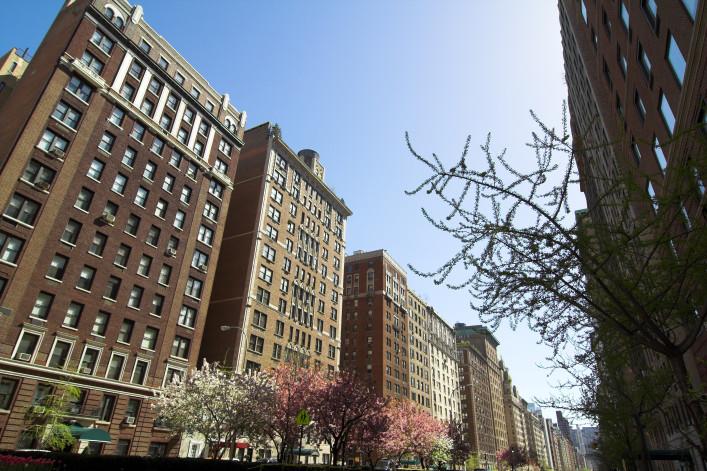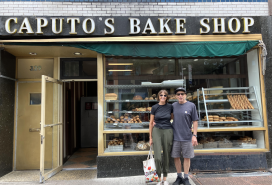Board Approved: How to impress a NYC co-op board

iStock
The NYC co-op board application process is not easy (which is why we at Brick have dedicated dozens of posts and even an entire series to it), but as is the case with most things in life, the more prepared you are, the easier it'll be.
For this look at a topic of understandably perennial interest, we asked nine current and former board members and one property manager (privvy to board members' decisions) what matters most to them. Roughly speaking, their concerns fell into four categories:
- Is the buyer financially capable of buying the apartment--meaning can they handle all monthly costs, like mortgage and maintenance/common charges, as well as assessments?
- Is their board package thorough and well-organized?
- Will this be a primary residence or investment property/pied-a-terre?
- Will the buyer be a good (or at least not bad) neighbor?
Now for the details.
1. First things first: Finances, finances, finances
The vast majority of turndowns are over finances. Can you afford to buy the apartment--and weather any future financial storms?
“We require financial solvency and independence," says one current co-op board member from a large, post-war Manhattan building. "They have to be able to show that they can carry the apartment and that they can meet a certain debt to income ratio [of no more than 30 percent of their annual income]. Everything they earn must have third party representation--all assets, IRAs and 401k, all liabilities. We require two years of tax returns. And if they are planning to renovate, we need to know how much the cost will affect post-closing assets.“
The condition of the building you're buying into may heighten the board's concern about your finances.
"This is an old building," says one former board president, "and there are many assessments needed to make sure that it remains up to code, so we need to make sure their finances can handle that."
Take ample care to lay out your finances thoroughly and clearly.
"Every board will have a financially savvy person, and they will review your finances very carefully. Everything has got to match," says managing agent Gerard J. Picaso. "If you claim an income of something in one place, your income must match your income taxes. Income from sources other than a job must be referenced."
Annual income, versus liquidity, is the most important financial criteria, say board members. But liquidity becomes more important if you have bonus income, which isn't guaranteed from year to year.
"If someone has a lot of liquidity, a salary based on bonus is not that big of an issue," notes one co-op board treasurer.
2. Organization counts
Your co-op board package should be well-organized, with everything labeled and nothing left out.
“If it takes half an hour to find stuff, it can get frustrating," says Ken Jablon, a current Upper West Side co-op board treasurer.
Having a messy board package can send several messages to the board: that you're trying to hide something, that you're disrespectful of the board's time or just generally irresponsible.
Board members don't like to be left wondering about, well, anything.
For instance, “If you’ve had a lot of employers, you must explain why," says Picaso. Other thing to be sure to include and explain are if there's someone other than yourself who will live in the apartment (pets or humans), and anything that might come up in a formal background check, such as a criminal record, no matter how small the offense.
Similarly, advises Jablon, “If there is anything questionable about your annual income–like you’re retired and most of your money is in retirement funds--make sure the board knows in an explanatory letter with your package."
Gaps in the board packages aren't just perplexing--they create delays, pushing out the whole process with time-consuming letters back and forth, says Jablon.
3. Primary residence requirement
In buildings that don't permit pieds a terre, board members say they are quite serious about confirming that an apartment will be the buyer's primary residence.
"We don’t want transients in the building," says one co-op board president. Boards want people who will serve on the board and take responsibility for their property.
"It's not just an apartment building, it's a co-operative, a community of shareholders," says one co-op board admissions commitee member.
If you own multiple properties, you'll need to demonstrate that this will be your home and "that it isn't a hotel or investment property," says one former co-op board president.
The board will look at where you file your taxes and where your employer is based.
One Upper West Side board required a pair of bicoastal buyers--who also owned a home in L.A. due to their theatrical and music industry jobs--to submit their production and travel schedules, and include letters from their aging family members in New Jersey to prove that they planned to spend most of their time in New York City, while still owning in California.
4. Evidence that you'll be a good neighbor
"We are looking for people who are going to be mature, good neighbors," says one current co-op board member in a large post-war building in the West Village. "I know it’s hard to define, but they have to have a record of having owned or rented an apartment before" and of having the responsibility of paying for it.
Business and personal references are required along with bank letters. Past landlord references are also required to show that the tenant paid on time, was respectful of neighbors and didn't file any frivolous lawsuits.
In addition, several board members told BrickUnderground that they like to receive introductory letters with the board package.
"I personally like when someone writes a letter as to why they want to live there," says one co-op board admissions committe member."You get a sese of who the person is beyond their finances.It’s the first thing you see in an application and the first human piece you receive."
Social references also carry some weight on the good-neighbor scale. Boards look for signs of warmth of character, respect for others, loyalty and commitment.
Finally, some board members said they look for applicants who want to contribute to running the building.
“'It’s not just an apartment building," says one former co-op board admissions committee member in a mid-sized pre-war near Lincoln Center. "It's a co-operative, and if they are a financial professional, lawyer or architect we will want them to use their skills on behalf of the community.”
Related posts:
Here are the 7 most likely reasons you'll get rejected by a co-op board
5 things they're not allowed to ask you (sponsored)
How to appeal a co-op board turndown
My Big Fat Board Interview: The $50,000 curveball
7 questions to ask about the building before you buy an apartment there [sponsored]
My Big Fat Board Interview: Sometimes there's a limit to how pet-friendly they'll be
Here's what "case-by-case" approval really means
Moving to NYC? Here's a crash course in finding an apartment here
Buying an apartment for your (grown) kid? Here are 4 things to keep in mind
9 curveball co-op board interview questions (and how to answer them)
To pass your co-op board interview, read this first
Real life stories of real board interviews
























